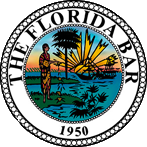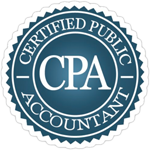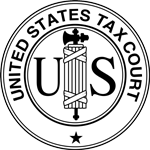Payroll Trust & Recovery Funds Attorney in Port Saint Lucie
Is the IRS Trust Fund Recovery Penalty Severe?

Yes, the IRS Trust Fund Recovery Penalty (TFRT) is often called the “100% penalty” because the penalty equals the amount of the payroll trust fund taxes owed, making this one of the most significant and most impactful penalties in the IRS arsenal. Internal Revenue Code section 6672(a) allows the IRS to hold an owner or employee at a company personally responsible for the tax debt.
Most other IRS penalties are pale compared to the TFRT penalty; therefore, it is not wise to take it lightly. Getting professional advice may be prudent if the IRS charges you or other members of your organization with this penalty.
How Does the IRS Trust Fund Penalty Come About?
If an entity does not timely deposit its trust fund taxes, the IRS may assess TFRP against those deemed responsible within that entity. More on responsible parties later.
What Do Trust Fund Taxes Consist of?
When something is put into a trust, it is done for a beneficiary. W2 Employees have payroll taxes withheld from their pay by their employer, which they entrust to remit these funds to the IRS; hence the concept of payroll trust funds arises. Payroll trust funds consist of your employment taxes such as FICA taxes (employee portion of Medicare and Social Security taxes), federal income withholding taxes, and any excise taxes which are withheld. Once these are collected, the employer is responsible for remitting them in full to the IRS by a specified period.
For example, let’s say you have an employee who earned $2,000 before taxes. You will withhold total trust fund taxes of $ 353.00, consisting of:
- Employee Federal Income withholding tax of $200.00,
- Employee FICA taxes of $153.00
- Medicare premiums of $29.00
- Social Security contributions of $124.00
Employers must also match employees’ Social Security and Medicare withholdings and remit to the IRS along with the Payroll Trust Fund taxes withheld. Since employer matching is not being withheld from employees, it is not considered part of the Payroll Trust Fund, therefore, not included in that type of IRS penalty. However, failing to remit the employer FICA portion will enact penalties and interest to occur.
How Much Will the IRS Charge for Payroll Trust Fund Recovery Penalty?
As mentioned earlier, the IRS Payroll Trust Fund Penalty is known as the “100% Penalty”, as your tax burden has just doubled! Like in the previous example, if you owed the IRS $353.00 in trust fund taxes, you would now owe the IRS $706.00. Because the trust fund balance represents other taxpayers’ payroll tax withholdings, the IRS comes down extremely hard on violators.
To compound this issue, the IRS not only seeks retribution from businesses but also may go after anyone in a joint and several liability fashion it deems to be held responsible for the infraction. Understanding how the IRS determines individual liability for this penalty is essential.
Who Can Be Held Liable for Paying the Payroll Trust Recovery Fund?
For the IRS to pursue the Payroll Trust Fund Recovery penalty, it must establish that willful misconduct existed to prevent the payroll taxes from being timely paid. Therefore, the IRS can only go after individuals who could remit the payroll tax trust funds but reneged on doing so. Based on a company’s makeup and structure, there could be varying responsible parties to whom the IRS could go after. The parties responsible could include:
- A Director, officer of a corporation, shareholder, or employee,
- Partner of a partnership or employee of a partnership,
- A trustee or board member of a Nonprofit organization,
- Third-party payer or another corporation,
- Another person with control and authority over payroll tax funds to oversee their disbursement, or
- Payroll service provider or professional employer organization.
The IRS needs to assess if the failure to remit the payroll trust fund taxes was willful. To establish if the action(s) were willful, the IRS must prove that the responsible person should have been mindful of the delinquent payroll taxes and intentionally ignored the tax or was uncaring about the tax remittance requirements.
An excellent example of someone who had both the authority and acted willfully would be someone in charge of finances in an organization who decided to use the employee trust fund taxes to pay something else rather than remitting the funds to the IRS. Conversely, the IRS most likely would not hold an employee responsible if they were following payment disbursement directions of a superior and did not have autonomy over that decision.
How Does the IRS Respond to Entities Who Have Unpaid Trust Fund Taxes?
Once the IRS determines that an entity has not paid its payroll trust fund taxes, it will typically have a revenue officer open a case and start research to determine the relevant parties and obtain facts surrounding the circumstances. The IRS may request financial documents to acquire information from the entity, such as bank statements, payroll records, canceled checks, agreements, contracts, articles of incorporation documents, and other 3rd party information.
How Does the IRS Inform Those Responsible for Payroll Trust Fund-Related Infractions?
The IRS will send Letter 1153 (Trust Fund Recovery Penalty Proposed) to those it deems potentially responsible for payroll trust fund violations. If you receive this letter,
you have ten days from the letter date to file an informal protest and 60 days (75 days if the letter was addressed outside of the United States) to file an appeal with the IRS Office of Appeals. In either case, if mailing in the response, use certified or registered mail to prove the mailing date if needed.
If you agree with the notice assessment, you can sign off on Form 2751 Proposed Assessment of Trust Fund Recovery Penalty, provided with the 1153 letter. Within 14 days of receiving form 2751, the IRS will send you Letter 1155, Notice of Agreed Trust Fund Recovery Penalty.
It may be ideal to consult with a tax attorney-CPA before signing off on this letter. A tax attorney-CPA can adequately assess your situation to ensure you are on the correct path to obtain the best possible outcome.
How Does the IRS Obtain Information Relating to Payroll Trust Fund Violations?
The IRS uses what is known as a Trust Fund Recovery Interview. The IRS Form 4180 to obtain information to help it determine responsibility. One of the main issues the IRS factors when deciding whether or not the entity could have paid the payroll trust fund depends on whether or not other liabilities were being paid. Therefore, some questions will be geared to establish whether the company was paying other expenses instead of remitting payroll taxes withheld. The IRS can summon anyone it deems could be a responsible party involving payroll trust fund tax violations. Here are some of the questions asked during the interview:
- Are you an authorizer for payroll payments?
- Are you a financial policymaker for the company?
- Do you pay other bills for the company?
- Were you aware other expenses were being paid? Who authorized?
- Were you aware payroll taxes were not being paid?
- Do you make payroll tax payments?
- Are you a signor or submitter of payroll tax returns (Quarterly 941 and Annual 940)
- Who is in charge of handling IRS responses in your company?
- What is your role with the company’s electronic banking?
- When did you hear about the payroll tax issue?
- What did you do after you heard about the payroll tax issue?
The main gist of the questions is to assist the IRS in determining whether you were responsible for paying the payroll taxes.
To avoid the IRS Form 4180 interview, you can either pay the payroll trust fund taxes and associated penalties or sign off on Form 2751 to admit responsibility.
Consulting with a tax attorney-CPA would be beneficial, especially if you believe you are not responsible for the payroll trust fund taxes.
What If I am Not Able to Pay the Trust Fund Recovery Penalty?
There may be some IRS tax resolution options if you cannot afford to pay the IRS Trust Fund Recovery Penalty. You may qualify for:
- Installment Agreement (IA)– full pay on balance (tax and penalties) over time
- Partial Pay Installment Agreement (PPIA)– pay you can set up an installment agreement to pay the tax and penalty in monthly payments.
- Currently Not Collectible (CNC) status – If you cannot pay anything. IRS will require a complete financial report to establish your inability to pay. This will be reviewed every two years to determine if your financial situation has changed.
- Offer in Compromise (OIC). A full financial determination is made to see if you qualify for settling the payroll tax debt for less than the full amount owed.
It’s essential to fully understand your rights and options when dealing with the IRS regarding Trust Fund Recovery Penalty issues.
Get Trusted Professional Tax Help with IRS Trust Fund Recovery Penalty– Make the Call

To ensure you get the best possible IRS Trust Fund Recovery Penalty outcome, have an experienced tax attorney-CPA expert make it happen. Call today (772-418-0949), or complete an online inquiry form for a free consultation with experienced IRS Trust Fund Recovery Penalty Tax Attorney-CPA-EA, Will Harmon of Harmon Tax Resolution, LLC. He will handle your IRS issue so you can return to doing what matters most.
Why You Should Trust Harmon Tax Resolution, LLC With Your Tax Problem!
A Florida law firm
- A+ Rated with the Better Business Bureau (BBB)
- From start to finish, ONLY a multi-licensed Tax Attorney- CPA-Enrolled Agent Will Handle Your Case, ensuring EVERY facet is covered! You complete representation! Why settle for less?
- A complete investigation of your case is done, leading to a tailored resolution that provides you with a thorough explanation of the merits of it.
- IRS Issue resolution is ALL THAT I DO. IRS language is my primary language. My sole focus is solving IRS Tax Problems—only your IRS matter matters.
- Protect your rights and handle all IRS communications/dealings so you don’t have to.
- Many successful outcomes for clients. Please read the client testimonials.
- Complete secure protection of your personal information.
- In-person meetings and/or done securely online.
- Offer a 100% Free, No-Cost Obligation Consultation. I will make sure you are well-informed before making any decision.
- Financing is available in some cases.
- Licensed E-Filer with IRS and will handle unfiled tax returns.
- Will communicate with you at a convenient day/time and with a medium of your choice.
For additional information, please see the following blog articles:











